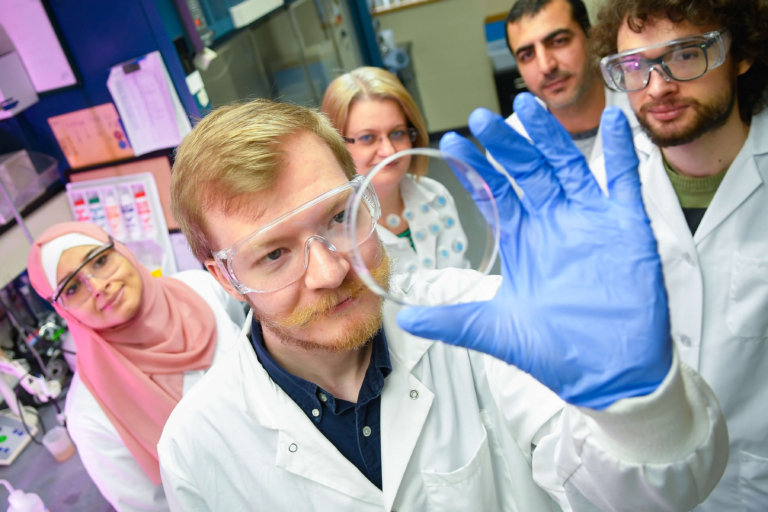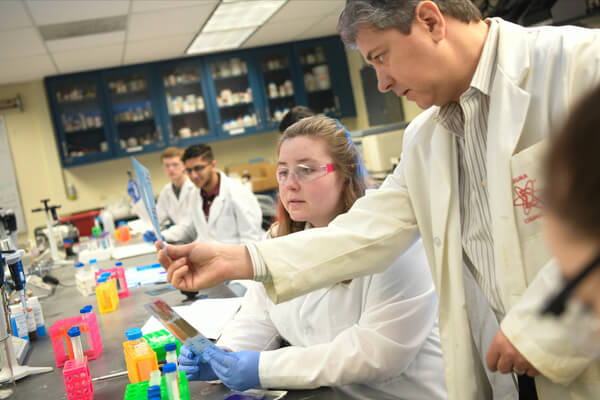
The world has a lot to be proud of when it comes to diversity and equality. Since 2014, tech giants such as Apple, Google and Microsoft have been publishing annual diversity reports, with many businesses prompted to follow suit. In the last few years, job postings for chief diversity officers have increased by 35%, with approximately one in five Fortune 500 companies currently having one. More than two in five companies have three or more women in their C-suite, up from 29% of companies in 2015.
Yet, there is still much to be done. From a devastating pandemic to the climate crisis, there are many global issues many organisations – big and small – must do better to promote multiculturalism, diversity, and inclusivity.
This will have to start at the school and university level. Especially in universities, diversity often goes beyond acceptance of race and ethnicity. Sexual identity, orientation, income levels, first-generation status, cultural backgrounds and gender are just as important.
Educational institutions that boast a diverse and inclusive student body are proud to offer an environment that encourages the understanding of different perspectives. These campuses often offer more worldviews than others, equipped to produce graduates who go on to achieve international success.
Apart from immersion, the benefits of gaining an education in an inclusive environment stretch far and wide. The proof is in the research. According to an article from The Century Foundation, ”Students who interacted with racially and ethnically diverse peers showed significant gains in cognitive skills, such as critical thinking and problem-solving.” These competencies are known to play key roles in academic and professional progression.
American universities traditionally fulfill these missions. Paired with rigorous academics, they make a conscious effort to build a healthy and diverse learning environment ideal for executing goals. Here are four universities in the US that guarantee students all over the world are granted an equal opportunity:
Clarkson University
Students seeking an interdisciplinary education that gives them the know-how to develop innovative solutions would do well to consider Clarkson University. Located in the quintessential college town of Potsdam, New York, this national research university has more than 90 rigorous programmes of study, a technology-rich curriculum blended with other disciplines, and a track record of going beyond the status quo of deep disciplinary knowledge.
Clarkson educators ignite the connections across disciplines, industries and social cultures. They encourage collaboration between programmes, which span the arts, business, engineering, education, the sciences and health at the bachelor’s, master’s and doctoral levels.
Faculty members also pursue interdisciplinary research focused on solving real world problems, working with over 380 active industry partners, government agencies, chambers of commerce and research organisations. The vast network grants students access to hands-on experiences or internships during their studies, priming them for successful careers upon graduation.
On the social side of things, the Clarkson Intercultural Ambassadors Programme and the D&I Lounge work to build community. Student-led groups like the Clarkson University Student Association and Graduate Student Association, as well as many clubs and organisations, arrange activities that connect students across departments.
The Clarkson approach to higher education is effective: alumni salaries are among the top 2% in the nation and one in five is currently a CEO, senior executive or company owner. To learn more about this American success story, click here.
UC Berkeley
At the US’s #1 public university was founded in 1868, born out of a vision in the State Constitution of a university that would “contribute even more than California’s gold to the glory and happiness of advancing generations.” One way the university actively practices this, is through research. At UC Berkeley, challenges are addressed to create a better world. Here, research topics cross disciplines to result in new ideas.
This university has been determined to break barriers since its beginnings. Just two years after establishment, women were admitted on equal terms. In the 1890’s, international students were welcomed, many from Asia and South America. In 1988, no single ethnic group formed a majority. In 2014, the university formed the first ever competitive athletic team for blind students. Today, countless programmes and services ensure successful outcomes are open to all. UC Berkeley’s efforts are on track to close opportunity gaps altogether.
UC Berkeley is currently home to 1,600 faculty members who cover 350 degree programmes in 130 academic departments, and guide 80 interdisciplinary research units to 35,000 students.
According to US News, some of this university’s most popular majors include social science, engineering, biological and biomedical sciences, computer and information science and support services, and multi/interdisciplinary studies.
Rice University
Located in Houston, Texas, this university ranks among the nation’s top 20. Rice University promotes an individualised education with its six to one undergraduate student-to-faculty ratio and a residential college system – both of which are set in place to support students intellectually, emotionally and culturally. This close-knit, diverse institution keeps its students engaged through frequent social events, intramural sports, student plays, lectures, courses and student government.
By partnering with programs such as College Greenlight, Exploring Educational Excellence and College Horizons, Rice aims to reach students from all backgrounds and income levels. For further outreach, the university collaborates with community-based organisations. Here, every application is reviewed thoroughly. While taking academic backgrounds and personal experiences into consideration, socioeconomic, cultural, geographic, racial or ethnic, educational and multiple other perspectives are reviewed – this attention to detail allows Rice to make room for every student passionate about adding value.
When it comes to academics, majors and minors are aplenty. Rice offers over 50 undergraduate majors across six divisions of study, including architecture, engineering, humanities, music, natural sciences and social sciences. There are also multiple opportunities available for students to participate in research and collaboration.
University of Georgia
The University of Georgia (UGA) was founded in 1785 by the Georgia General Assembly, regarded to be the birthplace of higher education in America. However, today the school is known to pioneer global research, hands-on learning and extensive outreach. UGA utilises its resources to tackle some of the world’s greatest challenges – from combating infectious disease, creating a dependable food supply to advancing economic growth and strengthening cyber and global security.
At UGA, student excellence is top-priority and consistently achieved. UGA has been one of the nation’s top three producers of Rhodes Scholars for over two decades, with an honours programme that ranks among the top 10 in the country. A contributing factor to these outcomes? A focus on improving quality of life for all. UGA scholars are seen as leaders in pivotal fields such as vaccine development, regenerative medicine, plant sciences and more. These accomplishments have attracted over 38,000 students, currently spread across 17 colleges and schools.
It’s an environment that inspires achievement and embraces inclusivity. The UGA Office of Institutional Diversity remains focused on fulfilling its duties to maintain a diverse campus, enriched and informed by the personal, cultural, and intellectual differences of students, faculty, staff, and visitors. UGA campus resources include an African Studies Institute, the Asian American Student Association, the Black Affairs Council, a Center for Latin American and Caribbean Studies, a Center for Latino Achievement and Success in Education, a Disability Resource Center and the Georgia Association of Women in Higher Education – amongst many more.
*Some of the schools featured in this article are commercial partners of Study International













